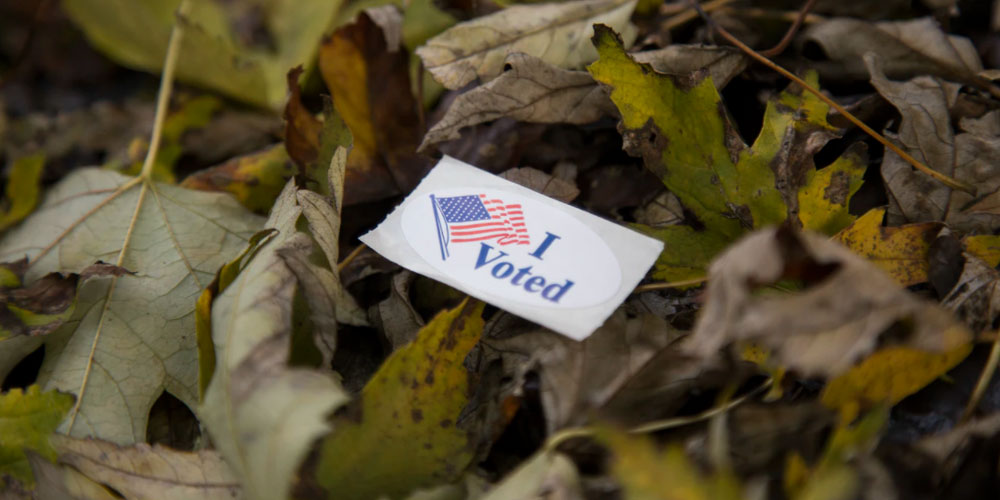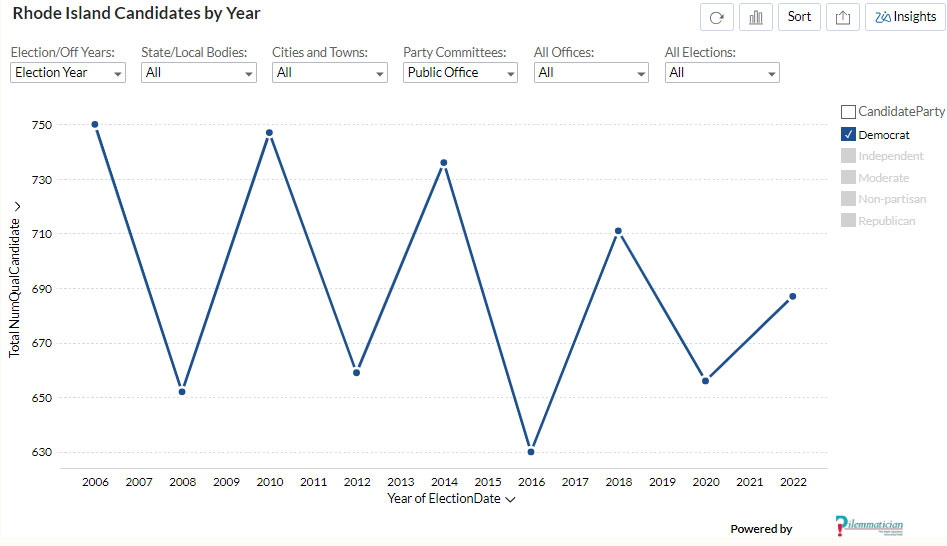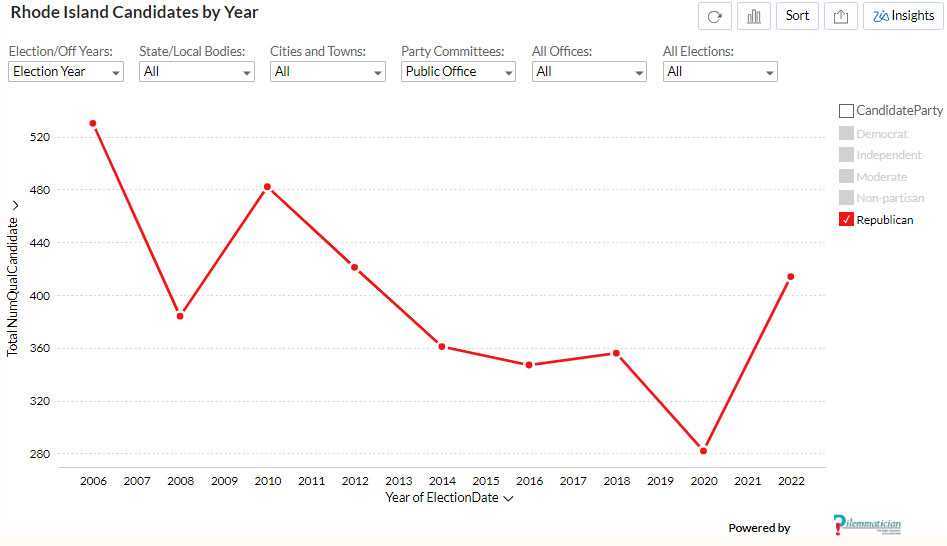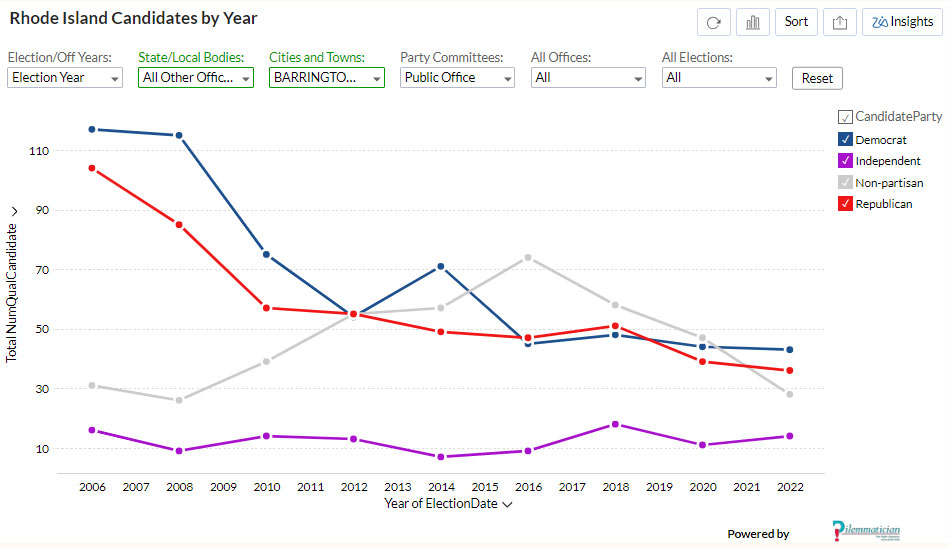
Fewer Rhode Islanders are qualifying for the ballot.
In part to answer curiosity about whether regulation of our elections in Rhode Island (through campaign finance laws) has been reducing participation, Anchor Rising has added an interactive tool to our People’s Data Armory. The page provides a filterable chart (with access to the underlying data) that shows the number of candidates who have qualified for the ballot during Rhode Island elections.
A decrease in candidates is what one would suspect. In business, regulation as a disincentive — a sort of tax — that increases the cost of startup and operation, which reduces incentive to participate at the margins. (That means people who find it a close, “marginal,” decision between starting a business or doing something else will be more likely to do the other thing. Of course, the same calculation applies if the something else is opening the same business somewhere else.)
State and local politics has the additional quality that many such roles are still considered to be an exercise of civic responsibility, so the pay isn’t great and is often nominal or nonexistent. This consideration is suggestive of another area worthy of investigation beyond the scope of this dataset: A candidate can have incentive to take a low-or-no-paying job if he or she can make money by some other means while or after holding that job. Thus, regulation of campaigns has the effect not only of limiting choice, but also of making it more likely the remaining choices will lean toward corruption.
Although such trends in political participation have many contributing causes, Rhode Island’s elections have, indeed, seen a pronounced decline in candidate participation, particularly among Republicans. Taking note of the fact that the line for Democrats tends swing substantially between gubernatorial and presidential years (with the former being higher), Democrats have seen an 8% drop in qualified candidates for public office at all levels.

Republicans’ decrease has been several times more dramatic. Even with a surge in 2022, 22% fewer Republicans qualified for office in 2022 than 2006. The decrease had been 47% in 2020.

Readers can play with the various filters to get as specific to offices or races as they like. In that direction, I’d note that “legislative” offices (General Assembly, municipal councils, and school committees) maintained their candidate bases reasonably well, at least among Democrats; Republicans were on the decline until the 2022 surge. Given that these are typically among the archetypal low-to-no-pay (but powerful) government jobs, I’d repeat my warning above that we could be selecting for people who have some other way to make money from their positions.
The following chart, in contrast, shows the very dramatic drop in the number of qualified candidates for all other local offices. Here, we’re looking at local administrators (mayors, clerks, treasurers, and so on) as well as other boards that are frequently seen as pure civic responsibility roles (budget committees, planning commissions, etc.). Whatever the significance of the offices themselves, they are crucial as stepping-stones for people who are not career politicians or do not benefit through special interest ties (like labor unions), but just get the bug to participate in government.

Again, many factors contribute to these trends. Anybody participating in hyperlocal governance knows that modern life’s many distractions have reduced engagement. Still, the decrease is unhealthy — limiting voters’ choices, tilting incentives toward corruption, and separating We the People from the exercise of government authority. Whatever other factors may be in play, the steadily increasing regulation of political engagement certainly hasn’t helped and should be reformed.
As a starting point, legislators should begin discussing an exemption for some of the hyperlocal offices that are essentially volunteer opportunities for civic-minded Rhode Islanders. This would limit regulation to those with greater responsibility and, probably, a little more experience. Then, if we see recovery in the last chart of this post, we could make a strong case that electoral regulation is limiting our choices and our rights as citizens and balance that reality against the stated benefits of campaign finance.
Featured image by Josh Carter on Unsplash.


This is an exceptionally well done article!